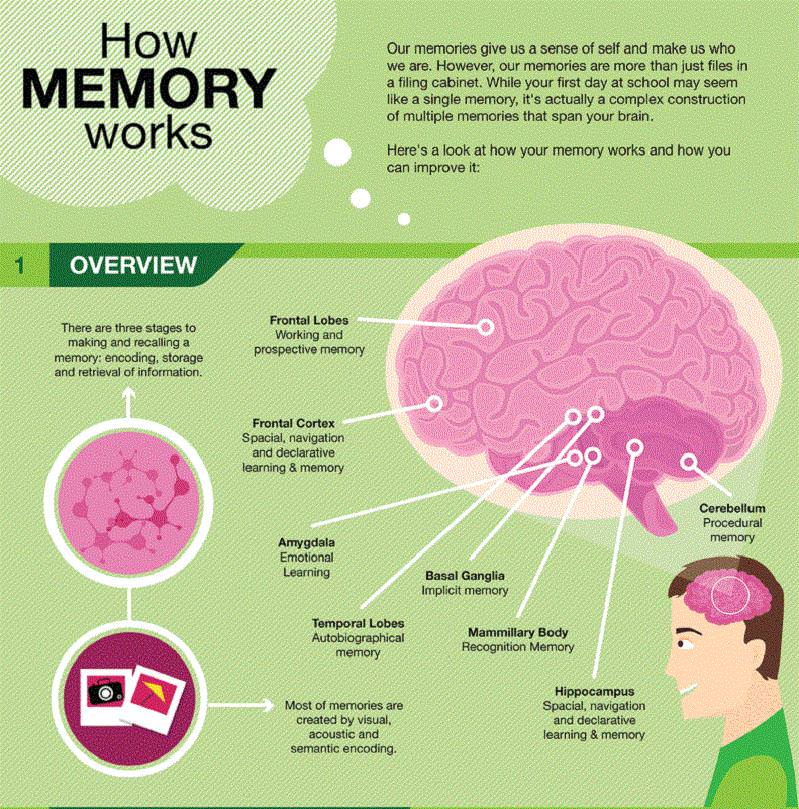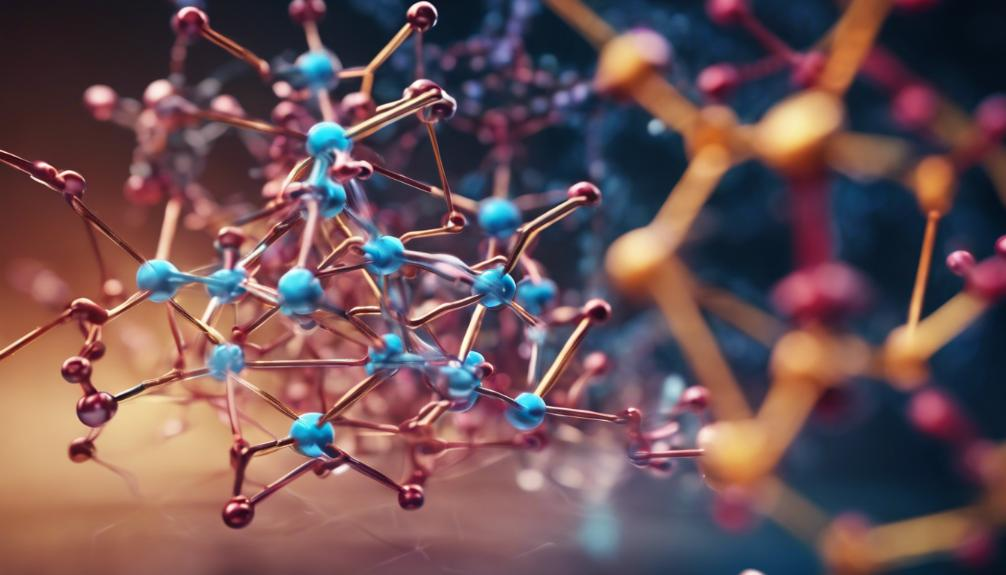Are you looking for effective ways to improve memory and enhance your recall skills? Memory improvement is essential not just for academic success but also for everyday life, helping you remember names, dates, and important information. By employing various memory techniques, you can significantly boost your brainpower and performance. Explore research-based memory tips, brain training exercises, and recall strategies that can transform the way you approach learning and retaining information. Discover the secrets behind memory mastery to unlock your full cognitive potential!
When it comes to optimizing cognitive function, the art of remembering can be referred to in several ways, from enhancing recall abilities to honing mental agility. Skills that facilitate better retention and recollection are often encapsulated by phrases like mental enhancement and cognitive reinforcement. Engaging in brain exercises and utilizing effective memorization strategies can greatly influence your ability to capture and retain knowledge. Whether through the use of mnemonic devices or immersive learning experiences, improving memory can surface as a vital skill in both personal and professional realms. Let’s dive deeper into how you can take your memory capabilities to the next level!
Unlocking the Secrets of Memory: Techniques for Improvement
Understanding memory is crucial, especially when seeking to improve recall during critical moments. Memory techniques, such as visualization and association, can significantly enhance how we retain information. The ‘Method of Loci’, or memory palace technique, is one of the oldest and most effective memory strategies. It involves creating a mental image of a familiar place and associating what you wish to remember with specific locations within that space. This practice taps into our brain’s spatial memory, making it easier to recall information later.
Additionally, incorporating brain training exercises can strengthen neural connections and promote cognitive agility. Simple brain games and puzzles stimulate areas of the brain linked to memory and learning, boosting overall brain function. Research shows that engaging in these exercises regularly can lead to substantial improvements in memory retention and recall, allowing individuals to navigate their daily lives with greater ease and confidence.
Memory Tips: Enhancing Recall for Everyday Situations
To navigate everyday situations, employing targeted memory tips can dramatically improve our ability to recall names and important details. For instance, when meeting someone new, actively engaging in the moment—such as repeating their name during conversation—can help embed it in your long-term memory. This conscious effort not only aids in memory retention but also fosters a connection, making interactions more meaningful.
Furthermore, reducing distractions is essential for optimizing memory performance. Studies indicate that multitasking degrades memory quality, as the brain struggles to focus effectively on multiple streams of information. By minimizing background noise and actively concentrating on the task at hand, individuals can enhance their processing and recall capabilities, leading to better outcomes in both academic and social realms.
Brain Training Techniques: Building a Stronger Memory
Brain training is an effective method to build a fitter mind and improve memory over time. Techniques such as regular physical exercise, engaging in new skill acquisition, and challenging one’s cognitive skills through memory games can significantly impact brain health. Exercise is particularly beneficial, as it promotes neurogenesis—the growth of new neurons—which is essential for memory improvement and cognitive function. In fact, physical activities can release growth factors in the brain that enhance memory and cognitive processing.
Additionally, mindfulness practices like meditation have been found to improve attention and memory retention. By training the mind to become more focused and aware, meditation helps in sharpening recall strategies, allowing individuals to remember information more accurately. This combination of physical activity and mental training creates a robust approach to not only enhance memory but also maintain overall brain health as we age.
Strategies for Effective Recall: Mastering Memory Techniques
Employing effective recall strategies can transform how we remember important information. Techniques such as spaced repetition, where information is reviewed at intervals, can dramatically enhance long-term retention. This strategy leverages the psychological spacing effect, which suggests that spreading out study sessions over time rather than cramming can be far more effective for memory consolidation.
Moreover, utilizing mnemonic devices—such as acronyms or rhymes—can make memorization simpler and more engaging. For instance, creating a sentence where each word begins with the same letter of the list you want to remember can facilitate quicker recall. Engaging these creative methods adds an element of fun to learning while optimizing memory performance in a way that is both effective and enjoyable.
Understanding Memory Degradation: The Role of Stress and Multitasking
Memory degradation can often be linked to stress and multitasking, both of which negatively impact cognitive function. When under stress, our mind prioritizes immediate survival responses, which can actually hinder our ability to recall information effectively. This phenomenon occurs because high-stress situations can lead to the release of cortisol, which, in high amounts, impairs memory processes.
Multitasking introduces another layer of complexity to memory retention. When we split our focus between tasks, we reduce our cognitive capacity to process information accurately. Concentrating on one task at a time allows our brains to encode memory more effectively, leading to stronger recall capabilities. Recognizing the effects of stress and multitasking can empower individuals to adopt better practices for memory improvement and overall cognitive health.
The Science Behind Memory: Insights from Research
Research into memory science has provided valuable insights that can inform our understanding of how to improve recall. For instance, studies show that retrieval practices—actively recalling information—strengthen neural pathways associated with memory. This implies that the more we practice recalling information, the more established our memory becomes, making it easier to access in future situations.
Moreover, the work of researchers such as George Miller has helped shape our understanding of cognitive limits, including the capacity of short-term memory. Learning how our brain processes and retains information can lead to the development of personalized strategies for memory improvement. Emphasizing the significance of understanding memory mechanisms can enhance individuals’ recall abilities significantly.
Memory Improvement: The Importance of Sleep and Rest
Did you know that sleep plays a crucial role in memory improvement? When we sleep, our brains are busy consolidating memories from the day, organizing them for later retrieval. Lack of adequate sleep can severely hinder memory retention, leading to difficulties in recalling information at later times. Prioritizing sleep is not merely beneficial for physical health; it is essential for cognitive functioning.
Incorporating routines that promote good sleep hygiene, such as maintaining a consistent bedtime and creating a calming pre-sleep environment, can enhance memory performance. Preparing the mind and body for restful sleep allows for the continuation of brain processes critical for memory consolidation, significantly impacting how effectively we can recall important information in our daily lives.
Practical Tips for Training Memory: Everyday Applications
Implementing practical memory training techniques in everyday life can lead to considerable improvements in recall. For example, creating a daily to-do list not only aids in task management but also enhances memory through active engagement with the tasks at hand. Writing things down involves kinetic memory, making it more likely that you will remember those tasks later.
Similarly, engaging with information through teaching others can reinforce memory. Explaining concepts to someone else requires a deeper understanding of the material, ultimately enhancing one’s own recall. These practical applications provide immediate benefits, allowing individuals to strengthen their memory skills in real-world contexts.
Mastering Memory Techniques: From Basics to Advanced Strategies
Mastering memory techniques involves understanding both fundamental principles and advanced strategies that cater to various learning styles. Simplifying information through chunking—breaking down complex information into smaller, manageable units—can be a powerful technique for enhancing recall. This method is particularly effective for memorizing numbers, dates, or lists, making it easier to retrieve the information when needed.
Additionally, exploring advanced techniques like the ‘linking method’—which involves creating stories that link items together—can aid in retaining more complex information. These strategies not only make learning enjoyable but also ensure that the information sticks, significantly boosting memory retention capabilities in academic, professional, and personal scenarios.
Frequently Asked Questions
What are some effective memory techniques for improving memory retention?
Effective memory techniques for improving memory retention include mnemonics, visualization, and the method of loci. Mnemonics use associations to help remember facts, while visualization involves creating mental images of information to enhance recall. The method of loci, or memory palace technique, allows you to associate information with specific locations, improving your ability to remember.
How can brain training contribute to memory improvement?
Brain training can significantly contribute to memory improvement by engaging the brain in activities that enhance cognitive functions. Activities like puzzles, memory games, and learning a new language can strengthen neural pathways, improving memory and recall abilities over time.
What are some practical memory tips for students studying for exams?
Practical memory tips for students include practicing spaced repetition, taking regular breaks, and using active recall strategies. These methods encourage better retention and understanding of material, ultimately enhancing memory performance during exams.
How do recall strategies impact daily memory tasks?
Recall strategies, such as chunking information or using storytelling techniques, can greatly enhance your ability to remember daily tasks. By organizing information logically or creating narratives around it, you facilitate easier access to the memories when needed.
Can exercise lead to memory improvement?
Yes, exercise has been shown to lead to memory improvement by increasing blood flow to the brain and releasing growth factors that promote neurogenesis. Regular physical activity helps enhance cognitive function, including memory and recall abilities.
What role does sleep play in memory improvement?
Sleep plays a crucial role in memory improvement as it consolidates and processes information acquired during the day. Quality sleep enhances memory retention and recall, helping to free up brain capacity for new information.
Are there specific foods that enhance memory and cognitive function?
Certain foods can enhance memory and cognitive function, such as fatty fish rich in omega-3 fatty acids, blueberries packed with antioxidants, and nuts like walnuts. These foods support brain health, improving memory and overall cognitive abilities.
How does stress affect memory retention and recall?
Stress can adversely affect memory retention and recall by impairing brain function. High levels of stress can disrupt the ability to focus and remember information, making it more challenging to access memories when needed.
What is the ‘method of loci’ and how does it help with memory improvement?
The ‘method of loci’ is a mnemonic technique that involves visualizing familiar locations to organize and remember information. By placing items to remember along a familiar path, you create strong associations that enhance recall, making it a powerful tool for memory improvement.
How can improving memory influence personal and professional life?
Improving memory can positively influence personal and professional life by enhancing learning skills, boosting productivity, and increasing confidence in social interactions. Better memory can lead to improved performance in academics and the workplace, as well as in managing personal relationships.
| Key Points |
|---|
| Key Points related to Improving Memory |
| Practice a new skill regularly: 1 hour a day is more effective than long, infrequent practices. |
| Exercise for six weeks releases growth factors that improve memory and increase hippocampus size. |
| Retrieving memories can change them, indicating that memory is not static. |
| George Miller’s research influences modern identification number lengths, showcasing practical applications of memory study. |
| Multitasking decreases memory performance, especially verbal tasks. |
| When meeting someone new, focus on associations rather than potential names to improve recall. |
| Sleep enhances memory retention and retention capacity. |
| Cannabis can impair memory, while coffee does not have the same effect. |
| The ‘method of loci’ is effective for memory by linking information to familiar landmarks. |
| Stress can enhance short-term recall, showing both positive and negative effects on memory. |
Summary
Improving memory is essential for effective learning and daily functioning. By implementing research-based strategies outlined by experts, such as consistent practice, adequate sleep, and targeted exercise, individuals can significantly enhance their recall abilities. Understanding the dynamics of how memory works can lead to better retention and retrieval of information, making it easier to remember names, facts, and skills efficiently. Taking the time to explore these methods could transform the way one remembers.



